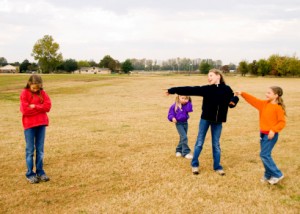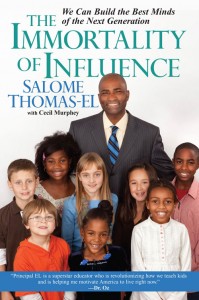Last week I had the honor of speaking to several groups of very articulate 4th-8th graders. The topic was one of my favorites: Real Friends vs. The Other Kind. The students submitted questions but because I didn’t have a chance to answer them all during our time together, I promised to post them in a series of blogs. Here’s the first installment of that series. I hope parents and kids will read these questions together. I also hope my responses will open the channel for ongoing conversations about friendship challenges. Click here for Part 2 of the series.

This friendship stuff can be really confusing
General friendship questions:
1. “How do friends become friends?”
That’s a great question! How people become (and stay) friends is a little bit magical. You meet someone and there’s something about him or her that you just like. And that person feels the same way about you. Maybe you two share a special interest. Or you have a similar sense of humor. There are many ways and many reasons people are drawn into a friendship. Whatever is the “glue” that brings two people together in a friendship, it is often a great opportunity to learn about yourself and others.
2. “How long do friendships last?”
Friendships are not like milk or cottage cheese. They do not come with an “expiration date.” Friendships between kids, tweens and teens usually last as long as both friends feel respected, accepted and safe in the friendship. When one or both friends no longer feels comfortable in the friendship (for whatever reason) it makes sense to talk about it with your friend. (Talking about it behind your friend’s back is not a good idea. I’ll bet you can guess why.) Sometimes an honest conversation can help friends realize that they need to make some changes in the way they treat each other. When both people are willing to make those changes, then the friendship can grow to the next level. Sometimes what comes out of that kind of conversation is a decision to take a “break” from the friendship. That’s ok too.
3. “How do you figure out a problem fairly?”
You probably don’t need me to tell you that it’s not always possible for someone to get his/her way all the time. That’s true in a friendship and in all relationships. When you want one thing and your friend wants something else, that’s a conflict. It’s not necessarily a bad thing. Think of a conflict as a good opportunity to work on unraveling a problem and making the friendship healthier. Here’s how: The most “fair” way to sort things out during a conflict is by taking turns LISTENING to each other. We listen best with a closed mouth, an open heart and an open mind. After we’ve each had a turn saying what we want and how we feel, work together and figure out a compromise. Try to stay calm. That’s important for good problem-solving and respectful behavior. By talking respectfully and working together in this way, you and your friend have made your friendship stronger. When each friend gets some of what he/she wants, it’s more likely to feel fair.
4.”Why do these friendship problems happen?” “Is it normal to have a fight with a friend?”
Problems between people happen because each of us has his/her own ideas and opinions. It is totally normal to disagree with a friend from time to time. As long as you and your friend are always treating each other with respect (even when you’re disagreeing) then it’s fine. In fact, dealing with friendship problems can be very educational! There’s no reason to get stressed or worried if you and a friend aren’t getting along right now. Calmly talking about the problem with your friend and LISTENING respectfully to each other is a good way to resolve problems. Even though talking is good, it isn’t always going to instantly fix what’s wrong in a friendship. But it’s usually a great place to start. But sometimes, when people are feeling very angry or hurt, it’s a good idea to give each other some space. Then when emotions cool down, you and your friend are in a better place to talk and to listen. If you need help sorting things out between you and a friend, talk to your parents or email me.
5. “How do you know when a friend is a friend?”
That depends on how you define the word “friend.” I define a real friend as someone I trust who I feel totally comfortable and safe with. I always know I can talk openly with my friend and he/she feels the same way about me. Me and my friend share interests and values. We enjoy spending time with each other and can freely share the good times and the sad times. But that’s just me. Take a minute right now and think about your own definition of the word “friend.” Now think about all the people you call your “friends.” When you think about a real friend, you may feel happy. You may even get a little smile on your face when you think about this person and the special friendship you have. If you’ve got a friend who makes you wonder “Is this person really a friend?” chances are you may not smile when you think of him/her. Instead you may feel confused or worried or jealous or stressed. It’s a good idea to pay attention to the way you feel when you’re with someone. Positive feelings are good clues to let you know if someone is a friend. Negative feelings are worth paying attention to also. They can be clues that something is not right in the friendship.
Questions about 3-way friendships
• What do I do when I have two close friends who don’t like each other?
• What do I do when I have a friend who has another friend that I don’t like and we have mini-fights over the person we both like?
• What should I do if my BFF and me don’t get to hang out at all and he/she plays with someone else that is not me.
• What do you do if your close friend is also a friend to someone you are friends with but not as close and you are fighting over the other friend?
• What happens when you are fighting over a friend with someone else?
Answer: All of these questions refer to “triangle friendships” that is, three people in a friendship where Friend A feels really close to Friend B but not so close to Friend C. When that happens, sometimes Friend A and Friend C argue a lot and Friend B can feel like (s)he’s stuck in the middle! It can get very stressful and complicated for everyone involved. Each situation is different, of course, but usually a good idea to calmly sit down together and talk to each other about what’s going on. It’s rarely a good idea to talk about people you’re not getting along with. That just adds to the “social garbage” in a friendship and in a school. The world is already filled with enough social garbage, so please try not to add to it! After a respectful conversation, it may turn out that all three friends figure out a way to be in a healthy triangle friendship. Or it may turn out that the best solution is to split up the triangle into two groups of two. For example, Friend A and Friend B spend some of the time together while Friend C spends time with Friend D (a new friend who wasn’t part of the triangle). Then on another day, Friend A and Friend C hang out together (just the two of them) while Friend B spends time with Friend E. Friendship conflicts are an opportunity to grown. Learning to compromise is a good life-skill. It gives each person some of what they want and helps you feel more grown-up and in charge of your behavior.
That’s all for now. Next Wednesday I’ll be posting some more friendship questions from these amazing students.














